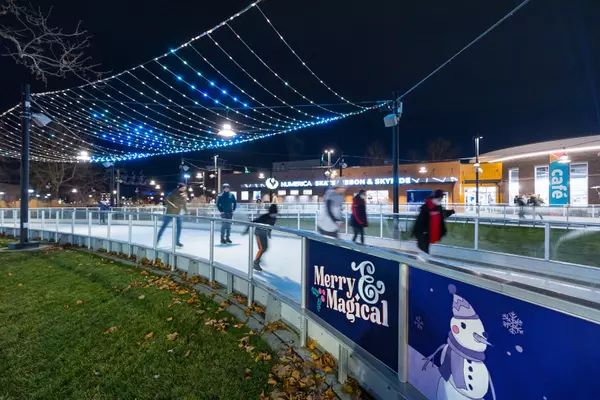
The Spokane Housing Inventory Crisis of 2023
With national headlines often portraying a bleak picture of the housing market, it's crucial to examine the local perspective. In this blog post, we will delve into the real estate market in Spokane, Washington, focusing on the inventory across different sectors. By analyzing the current state of apartment buildings, new construction, resale homes, Airbnb rentals, and additional dwelling units (ADUs), we aim to provide insights into the local market dynamics and their potential effects on homebuyers in the coming years. Apartment Buildings Spokane has seen a rapid increase in the number of apartment buildings. According to a Journal of Business article, over a thousand units are projected to be added. However, it's important to note that unlike larger cities such as Los Angeles or New York, real estate agents in Spokane typically don't assist with apartment hunting. Prospective renters often rely on platforms like Zillow and Facebook. While the inventory of rental properties is expected to expand due to permits issued for multi-family residential units, rental growth in Spokane has slowed. Over the past year, rent prices have decreased by 1.2%, which, although not significant, marks a departure from the substantial increases observed in the previous years. New Construction The availability of housing options is a significant challenge in Spokane, prompting the need for more construction. However, the data shows a concerning trend. Over the past decade, the number of new listings for residential properties, particularly new construction homes, has remained relatively stagnant. With an average of around 700-800 new homes hitting the market each year, it would take at least 32 years to bridge the current housing shortage gap of 32,000 units. This insufficiency of new homes entering the market impedes the restoration of a balanced housing market with a six-month inventory. Resale Homes The inventory of resale homes, or normal residential properties put up for sale by motivated sellers, has been declining steadily in Spokane. Apart from a slight bump in 2022, the number of new resale listings has remained at its lowest point in the last decade. This scarcity of inventory is unprecedented, with levels even lower than during the housing crash of previous years. Consequently, the limited supply of homes, coupled with a decreased number of interested sellers, creates intense competition among buyers, which contributes to the ongoing price growth in Spokane. Airbnb Rentals Contrary to the national trend, the Airbnb market in Spokane remains healthy. Occupancy rates have experienced only a slight decrease, while rental rates have reached peak highs in June 2023. Spokane's status as a non-destination city, where tourism is not the primary driver, contributes to the stability of the local Airbnb market. Consequently, the predicted wave of Airbnb listings flooding the market is unlikely to materialize in Spokane, as the city's rental revenue from Airbnb properties continues to increase. Additional Dwelling Units (ADUs) ADUs, which allow homeowners to build small units in their backyard for rental purposes, have become a hot topic in Spokane. While the number of permits issued for ADU construction has shown some growth, it remains relatively modest. However, there is potential for future development. Washington state law is set to change by 2027, enabling homeowners to convert ADUs into condominiums, thereby increasing their value and marketability. Investing in properties with larger lots in Spokane's opportunity zones could offer substantial long-term benefits for those looking to build ADUs and capitalize on the upcoming changes in legislation. The real estate market in Spokane faces significant challenges, primarily driven by a lack of inventory across various sectors. Despite some growth in apartment buildings and ADUs, the pace of new construction and resale homes remains insufficient to meet the demand. This scarcity of housing options contributes to rising prices and a competitive market. While Spokane's Airbnb market remains resilient, the anticipated wave of listings is unlikely to affect the local market significantly. To address the housing shortage, increased efforts are required to add inventory and provide more affordable options for homebuyers in Spokane.

The BEST Schools in Spokane, WA | Here's Where you Need to Live
Searching for the best schools in Spokane, WA? Look no further! This blog is your ultimate guide to the educational landscape of Spokane. We'll explore different approaches to finding your dream school for your kids, discuss neighborhoods with excellent schools, and empower you to make an informed decision. Join us on this virtual tour and find the dream school for your family here in Spokane, WA! Importance of School Ratings and Budget Considerations While Spokane has some fantastic schools within most neighborhoods or areas, it's essential to note that homes located in these places tend to be more expensive. Our budget plays a significant role in determining our options. Redfin and Greatschools.org To begin our search, we recommend using Redfin, a popular real estate platform that integrates with greatschools.org. Using Redfin allows us to use school filters provided by greatschools.org. By adjusting the rating preferences, we can identify neighborhoods with higher-rated schools and avoid areas with lower-rated school districts. However, it's important to consider other factors beyond just school ratings. Neighborhoods with High-Rated Schools A few Spokane neighborhoods with schools rated six or above, including the South Valley Green Acres area, South Hill, and the Five Mile Country Homes Mead area. These neighborhoods offer a range of homes, from higher-priced properties to more affordable options. Factors to Consider Besides School Ratings While school ratings are important, we advise considering other factors such as commute, amenities, and community atmosphere. It's essential to find a community that meets our overall needs and provides a well-rounded living experience for our families. Consider Timeline and Priorities Depending on your children's ages and your timeline, it may be more practical to prioritize neighborhoods with excellent elementary and middle schools rather than including highschools in your search. This approach can expand our options and provide a more flexible search. Utilizing Niche.com In addition to greatschools.org, we suggest using niche.com, another school rating website that relies on people's reviews and feedback. Combining information from both greatschools.org and niche.com can provide us with a more comprehensive understanding of school quality. Narrowing Down Your Search After conducting preliminary research using greatschools.org and niche.com, it's time to narrow down our search. We can use our pre-approved budget to refine our options on Redfin and then compare school information, crime rates, budgets, and home characteristics across different websites. Remember to call the schools directly to ensure accuracy and obtain the most up-to-date information. Finding homes in Spokane that align with your school preferences requires careful research and consideration. By utilizing resources like Redfin, greatschools.org, and niche.com, you can gather valuable information about school ratings and narrow down suitable neighborhoods within your budget. Remember to explore other factors, such as commute, amenities, and community atmosphere, to ensure a well-rounded living experience. Finally, reach out to a qualified real estate agent for assistance in finding your ideal homes in Spokane.

Should I Rent or Buy in Today's Housing Market? Here’s How to Decide
Buying a home is a significant milestone and life goal for many individuals. While the common belief is that renting is wasting money, and homeownership is an investment that builds equity, the truth is more nuanced. Several factors, including personal finances, lifestyle, goals, location, and the economy, come into play when deciding whether it's the right time to buy a home. While some of these factors are within your control, such as your desire to settle in one place, others, like interest rates and home prices, are beyond your influence. If you're uncertain about purchasing a house, it's crucial to carefully consider the following factors before making a decision. Stability vs. Flexibility Opting for homeownership involves considering both financial and lifestyle aspects. Even if you can afford to buy a home, it's essential to be ready for a significant commitment. When you purchase a home, it's recommended to stay in it for at least three to five years to build equity. Why is equity important? It represents the amount you'll receive when you sell your home. Equity is the difference between the home's value and the remaining mortgage amount. Waiting three to five years before moving allows you to pay down your mortgage while the home's value appreciates. A larger difference translates to more profit from the sale. What does this mean for your lifestyle? If you decide to buy, you should be prepared to stay in the same house for a few years, making homeownership suitable for those looking to establish roots. However, it may not be ideal if you prefer moving whenever your lease ends. Additionally, buying a home is advisable if you have a stable career and plan to remain in it for a while. Lenders generally require a two-year employment history in the same position to approve a home loan. To ensure timely mortgage payments, it's wise to avoid major career changes during the first couple of years of homeownership. Personal Finances and Costs Once you've determined that homeownership aligns with your lifestyle, it's crucial to consider the associated costs. The expenses for buying and renting differ based on the economy, housing market, and location. However, in the first year, buying is typically more expensive than renting. It's important to remember that purchasing a home is an investment, and the money you put into it can be expected to be recovered through outright ownership or future sale. For a conventional mortgage, you usually need a 20% down payment, along with 3-6% of the purchase price for closing costs. Your monthly expenses will include the mortgage payment (including interest), homeowner's insurance, home maintenance and repairs, and HOA fees if applicable. When renting, the upfront expenses are relatively lower. Typically, you'll need a deposit equivalent to a few months' rent. Monthly expenses include rent and renter's insurance, which is generally less expensive than homeowner's insurance since it covers belongings rather than the structure itself. Which option is cheaper? It depends on various factors, such as mortgage rates, housing and rental markets, and the overall economic conditions. When mortgage rates are lower, buying a home can result in a significantly smaller monthly payment compared to renting. However, the cost of entry into homeownership is usually higher. To determine the right choice for you, it's advisable to consult with an expert real estate agent or lender. Property Customization If you desire the freedom to modify and improve your property as you wish, homeownership offers that flexibility. When you own a home, you can paint, renovate, and update according to your preferences. While you'll be responsible for the cost, you have complete control over the outcome. Some structural modifications, such as square footage expansions, may require permits from local authorities. However, the benefits, such as additional space and increased home value, are entirely yours. On the other hand, making improvements to a rental property requires the landlord's approval, even for minor changes like repainting. Landlords may not be willing to permit tenants to make alterations, and even if they do, they're unlikely to cover the costs. Furthermore, any improvements made to the rental property become the landlord's property, and they benefit from the added value when you move out, without having made the investment themselves. There are also pros and cons to homeownership versus renting when it comes to repairs and maintenance. As a homeowner, you are fully responsible for maintaining your home, and neglecting maintenance can lead to a loss in value. However, you have control over when and how repairs occur. There's no waiting for a landlord to hire someone for repairs, and you can choose the quality of materials and who performs the work. When renting, landlords typically bear the responsibility for repairs and maintenance. You won't have to pay for a new water heater or roof repair. However, you may need to accommodate the landlord's schedule. While good landlords strive to complete repairs promptly, relying on someone else's timetable can cause inconvenience and frustration. The Housing Market If you've decided to buy a house, the next step is to determine whether it's the right time to do so. Assuming your finances are in order and you are certain about homeownership, evaluate the real estate market in your area and compare it to the rental market. In recent years, rental prices and home purchase prices have generally increased. However, currently, home purchase prices are starting to decline. This suggests that it could be a favorable time for you to buy. In conclusion, buying a home requires careful consideration of personal finances, lifestyle choices, costs, property customization preferences, and the state of the housing market. Consulting with professionals in the real estate industry can provide valuable insights and guidance to help you make an informed decision.
Categories
- All Blogs (632)
- Airway Heights (3)
- Audubon/Downriver (4)
- Balboa/South Indian Trail (5)
- Bemiss (3)
- Browne's Addition (3)
- Buying Your Home in Spokane (152)
- Cheney (3)
- Chief Garry Park (3)
- Cliff-Cannon (3)
- Comstock (4)
- Dishman (3)
- Driving Tours (1)
- East Central (3)
- Emerson/Garfield (3)
- Five Mile Prairie (5)
- Grandview/Thorpe (3)
- Greenacres (3)
- Hillyard (3)
- Home Improvement (8)
- Home Prices (5)
- Housing Inventory (6)
- Housing Market (130)
- Instagram Videos (2)
- Interest Rates (24)
- Job Market in Spokane (3)
- Know Spokane (333)
- Latah Valley (4)
- Liberty Lake (8)
- Lincoln Heights (4)
- Logan (3)
- Manito-Cannon Hill (3)
- Medical Lake (4)
- Minnehaha (3)
- Moran Prairie (3)
- Mortgage (26)
- Moving to Spokane (101)
- Nevada/Lidgerwood (3)
- New Construction Opportunities (3)
- North Hill (3)
- North Indian Trail (4)
- Northwest (3)
- Opportunity (3)
- Peaceful Valley (3)
- Riverside (3)
- Rockwood (4)
- Selling Your Spokane Home (111)
- Shiloh Hills (3)
- Southgate (3)
- Spokane Events (229)
- Spokane Neighborhoods (51)
- Spokane Restaurants/Food Places (24)
- Spokane Schools (12)
- Spokane Valley (13)
- Things to Do in Spokane (243)
- Veradale (3)
- West Central (3)
- West Hills (3)
- Whitman (3)
- Youtube Videos (49)
Recent Posts











